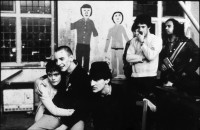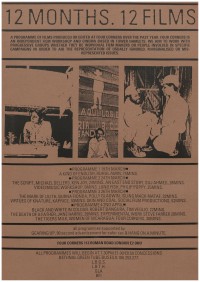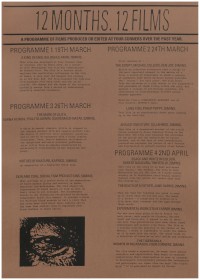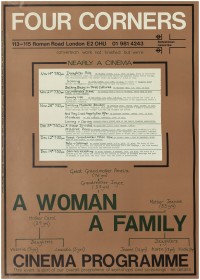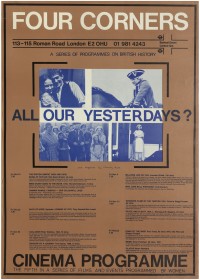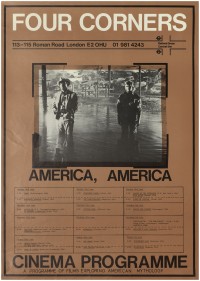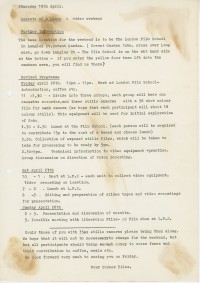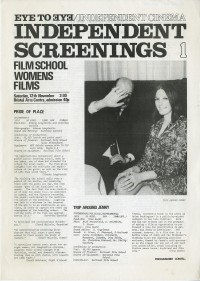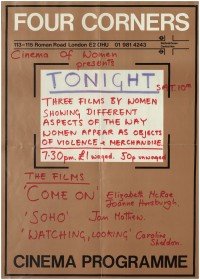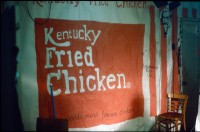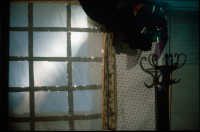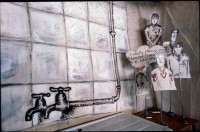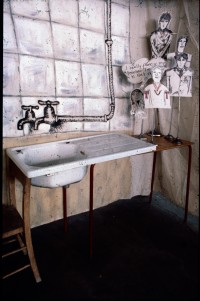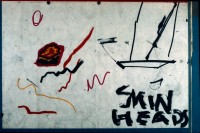Articles
Four Corners – one of the UK's first independent film workshops
Extract:
One of the first independent film workshops in the UK, Four Corners was founded by a group of four film students who met at the London International Film School in 1973. The name was loosely based on the fact that they came from all four corners of the world – Joanna Davis and Ron Peck were English, Mary Pat Leece was American, and Wilf Thust came from Germany.
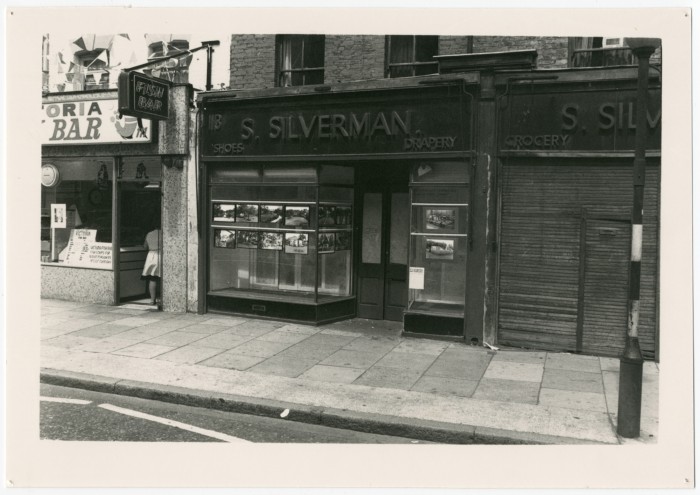
Four Corners’ distinct filmmaking approach was both socially engaged and experimental. They aimed to bridge the gap between politics and art, and to bring films and filmmaking to those who had previously been excluded from the whole practice. At 113-115 Roman Road they set up a film and cinema workshop, engaging independent filmmakers and local people in a ‘shared investigation of film-making and film viewing’.
We are generally interested in making films …which aim at challenging peoples’ preconceptions of what films are in order to encourage an active participation in what the film is about. – Four Corners Group Statement 1978
Four Corners’ earliest film projects – On Allotments and Railman – were collective collaborations. On Allotments, an in-depth look at a large site in Newham, conveyed a sense of place through slow, contemplative panning shots and a carefully composed soundtrack. The next film was very different. Nighthawks, developed by Ron Peck and Paul Hallam, was a full-length feature that took over Four Corners from 1975 to 1978. It was the first explicitly gay feature film set in the gay community, which showed a world still dominated by the closet lifestyle. Four Corners expanded to include Richard Taylor who, escaping his job as assistant editor for Alan Parker, edited the film with Mary Pat Leece. Lis Rhodes and Keith Cavanagh became involved shortly afterwards.
Nighthawks was a huge success, screening for 10 weeks at the Notting Hill’s Gate Cinema and touring the country. Ron Peck went on to make the Arts Council-funded film Edward Hopper (1980). Wilf Thust, Paul Hallam, Richard Taylor and Keith Cavanagh began to run the young people’s cinema workshop, and Joanna Davis and Mary Pat Leece started the ‘Mothers and Daughters’ screenings, both projects taking place at nearby Oxford House while building work completed in Roman Road. ‘In Front of the Camera, a month-long programme about filmmaking practice and acting, was held at the Half Moon Theatre, involving directors Mike Leigh and Sally Potter among others.
Open in 1981, Four Corners’ new 45-seat cinema provided a space to view films in an active and critical way. Pioneering programmes included seasons of European classics, silent film, experimental work, social documentaries and political agitprop. The downstairs office housed Circles, the feminist film distribution company, who contributed to many of the cinema programmes.
The history and lives of local communities became integral to Four Corners’ work, with films about youth and unemployment: Don’t Think So (1980) made by a group of local school students, and Co-habitation Blues (Four Corners Unwaged Workshop 1984).
The creation of Channel Four ushered in a new era for independent film production. Four Corners was formative in developing the trade union Workshop Agreement that enabled film workshops to produce work for the channel. It was an exciting time as films were broadcast under the Channel Four’s Eleventh Hour slot, including Four Corners’ films Bred and Born (1983), Hang on a Minute (1983), Is That It? (1985) and A Kind of English (1986) – probably the first TV drama directed by a British Bangladeshi filmmaker. However by the late 80s Alan Fountain’s budget at Channel Four dried up, and production at Four Corners gradually declined. With funding difficult to secure, Four Corners changed its focus to providing a film workshop for filmmakers alongside practical skills training and cinema screenings.
As the facility grew, the original members found living in the building increasingly stressful. Jo and Wilf left soon after their son was born, followed by Paul and then Ron. By 1986 the original group had disbanded. A new group of people were running the cinema and workshop: Ric Mann, Hilary Dunn, Caroline Spry and others. The organisation continued its commitment to working with local communities and supporting emergent filmmakers, alongside its cinema programmes.
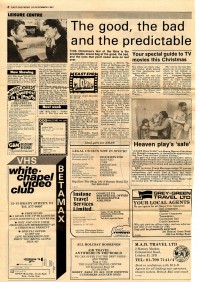
A SAFE Place to Be? - Simon Heaven
Review of film 'A Safe Place to Be?' in East End News Leisure Centre section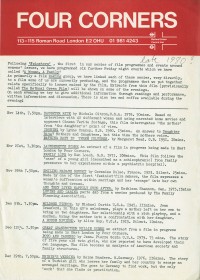
A Woman, A Family
A flyer for A Woman, A Family - a series of film programmes and events around womens' issues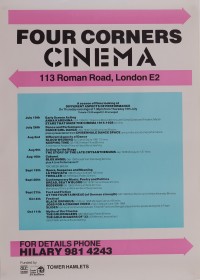
Different Aspects of Performance
Poster for a season of films looking at different aspects of performance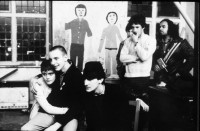
Don't Think So - Wilf Thust
Black and white photograph of young people during workshop for 'Don't Think So'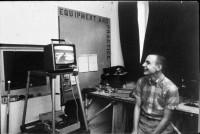
Don't Think So - Wilf Thust
Black and white photograph of a young person during a workshop for 'Don't Think So'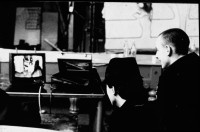
Don't Think So - Wilf Thust
Black and white photograph of young people during workshop for 'Don't Think So'